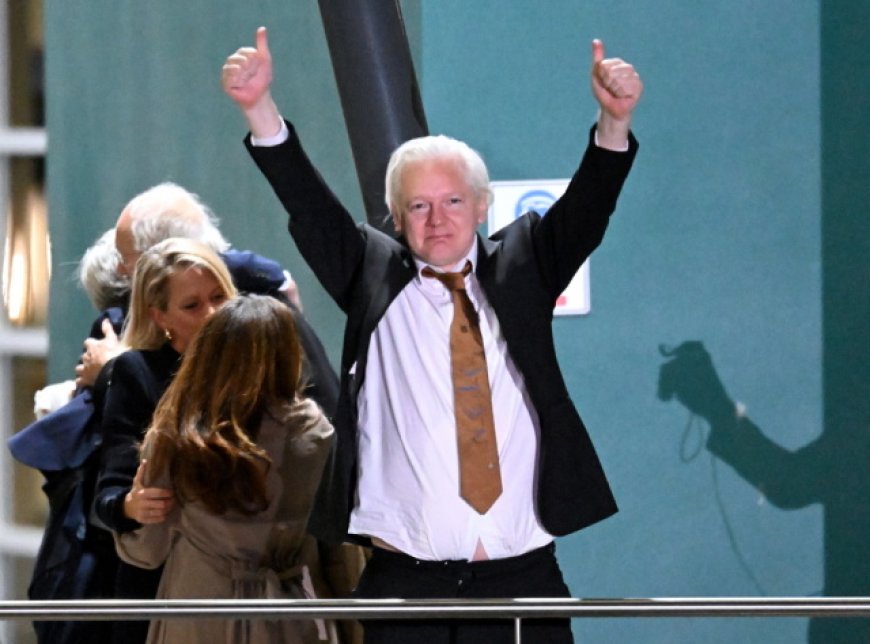Julian Assange to Break Silence in Strasbourg Emphasizing the Human Rights Fight Under His 14-Year Legal Journey

Following years of fierce legal conflicts, WikiLeaks founder Julian Assange is scheduled to make his first public appearance in Strasbourg on October 1, 2024. Following his long-awaited release from a British prison earlier this year, Assange opens a new chapter. More than just a chance for him to speak, his testimony before the Committee on Legal Affairs and Human Rights before the Council of Europe marks the end of a contentious and protracted journey that has enthralled people all around for more than 10 years.
Following a plea deal with the United States allowing his release, 53-year- Assange returned to Australia in June 2024. He entered a guilty plea to a single charge of conspiracy to obtain and distribute sensitive U.S. defense material in return for his freedom, effectively ending a 14-year legal standoff started when the U.S. sought his extradition for publication of military records. The plea agreement ended a string of well-publicized legal fights whereby Assange bounced between courtrooms in the UK, diplomatic asylum in Ecuador, and, finally, detention in one of Britain's most secure prisons.
Though Assange's struggle is far from finished, for many of his supporters this public presence constitutes a symbolic triumph. Stella Assange, his wife, has been candid about the negative effects years of incarceration have had on her husband's health and welfare. Returning to Australia, Assange said, was a required step for his long-term physical, psychological, and emotional healing. Having only seen his children from behind prison gates, Assange is now juggling reconstructing his personal life with his public persona.
One cannot overestimate the importance of Assange's forthcoming visit in Strasbourg. He will be presenting evidence to the powerful body known as the Parliamentary Assembly of the Council of Europe (PACE), which upholds democracy, human rights, and the rule of law all over Europe. This aligns with a PACE investigation concluding Assange's detention to be politically driven and attacked Britain and the United States on their handling of the matter. The report also demanded an unbiased investigation into the supposedly appalling treatment Assange was subjected to while under British custody.
His testimony at PACE could start worldwide discussions on the wider ramifications of his case for state secrecy, whistleblowing, and press freedom of expression. Published in 2010, WikiLeaks's release of classified U.S. military and diplomatic records revealed not just the underlying dynamics of world diplomacy but also cases of military misbehavior. For those of his fans, Assange is a hero who fearlessly revealed official misbehavior. For his critics, including American officials, his activities seriously jeopardized national security.
From sexual misbehavior in Sweden to espionage in the United States, Assange's legal path has passed many different worldwide judicial systems. Though his story is polarizing, his suffering has come to symbolize more general problems with government responsibility, whistleblower protection, and the careful balance between national security and information access. His supporters contend that his detention and extradition create a risky model for reporters and whistleblowers all around.
Furthermore, his case begs important issues regarding the political driving force behind export policies. Was Assange only a dissident revealing unpleasant facts on government actions? Alternatively was he a reckless person endangering lives in the sake of openness? As Assange returns to the front stage, these issues probably will come up once more.
In a time where media manipulation and false information are ubiquitous, the function of groups like WikiLeaks stays controversial. Assange's testimony will probably address these concerns, therefore augmenting his voice in a larger conversation on the ethical obligations of governments, reporters, and whistleblowers.
The world will be eagerly observing Strasbourg as the day draws near, keen to hear from a man whose quiet has been both a monument to the great cost his fight for openness has endured and a sign of resiliency. Will this event signal the start of a new chapter in Assange's life, or will it merely be a fleeting stop in an ongoing legal odyssey? In either case, Assange's remarks on October 1 are probably going to have resonance much beyond the Council of Europe's boundaries.
The Way Ahead: Political and Legal Consequences
Apart from a victory lap, Assange's public visit foreshadows the political and legal battles still to come. Although his plea agreement with the United States momentarily stopped extradishment, it raised unanswered issues regarding his future function as a whistleblower and proponent of openness. Particularly when Assange re-enters public life in the post-truth era, where facts and deception conflict more than ever, governments all around will be observing how he negotiates his newly acquired freedom.
Assange's situation nevertheless serves as a potent reminder of the complicated and sometimes perilous link between journalism, whistleblowing, and official authority as he gets ready to testify. His visit to Strasbourg will probably turn into yet another historic event in the continuous worldwide discussion on the function of truth-tellers in a society growing more closed-off.













































